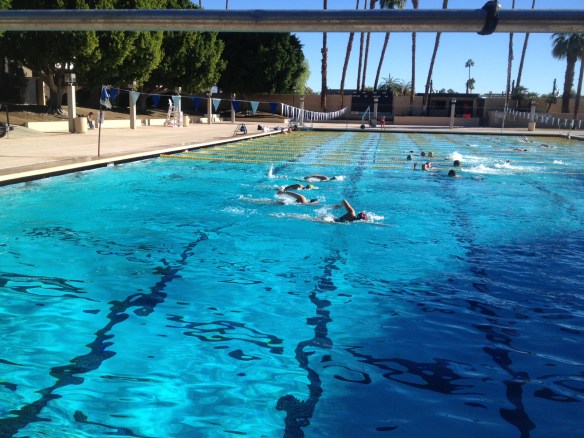My youngest child came home for one week of Christmas break. I’m sad to say, she left already for two weeks of intense swim training at school. She’s a freshman and when she was home, it felt like she had never been away. It was such a great feeling to have her go to morning practice, come back and lounge in her room watching Netflix. I think I was shocked that she had to leave again!
My son, who’s in his fourth year — notice I don’t say senior year — came home for a few days. Left to return to his part-time job. And will be back to celebrate New Year’s with us.
In the meantime, I received a letter from my daughter’s University — The Center for Student Wellness — with interesting information for parents of children of all ages.
They said in the letter that they’ve found on their campus 5 issues that affect academics:
- Stress
- Anxiety
- Work
- Sleep
- Cold/flu/sore throat
 The letter went on to explain that while sleep is fourth on the list, sleep affects everything else on the list. I’m not quite sure how they distinguish “stress” from “anxiety” because they seem to go hand in hand.
The letter went on to explain that while sleep is fourth on the list, sleep affects everything else on the list. I’m not quite sure how they distinguish “stress” from “anxiety” because they seem to go hand in hand.
However, they state that lack of sleep can be mistaken for stress. It can lead to anxiety. It can make your student more susceptible to getting sick. They suggest 7 to 9 hours of sleep every night. Then your child will be in a better mood. Plus, they will score higher on tests and have a higher GPA!

As the parent of a swimmer, my daughter gets her sleep. She has had no problem falling asleep. Ever. My son, on the other hand, can’t fall asleep. He stays up until the wee hours, and then we cannot wake him up in the morning.
My tip for getting enough sleep is simple: Swim!
Here are the tips from the University of Utah:
- Go to bed around the same time every night, and wake up around the same time each morning.
- Have a quiet, dark space to sleep in that is not too hot or cold.
- Be sure to remove distractions like televisions, iPods, computers, and tablets from bedrooms. Beds shouldn’t be used for activities like reading, watching movies, or listening to music.
- Begin powering down lights and electronics about an hour before bed.
- Avoid large meals, nicotine, caffeine, and alcohol right before bed.
- Limit naps to 20-30 minutes a day.
- Engage in regular physical activity.
BINGO! There is it. Number seven. If you have a child in athletics — particularly swimming — your child will sleep. Maybe that’s why they say that swimmers have the highest GPAs of all sports? Even though they get up at the crack of dawn for practice–they’ve had a full night’s sleep.




Last night I didn’t get my beauty sleep. This morning Steve gave me an article about sleep deprivation and memory-dementia relationship. Now you post this. Guess I better relax myself to sleep tonight. If only Steve didn’t snore so much
I have to work on my sleep habits, too! Not only does it affect students and their GPAs — lack of sleep makes us ditzy!